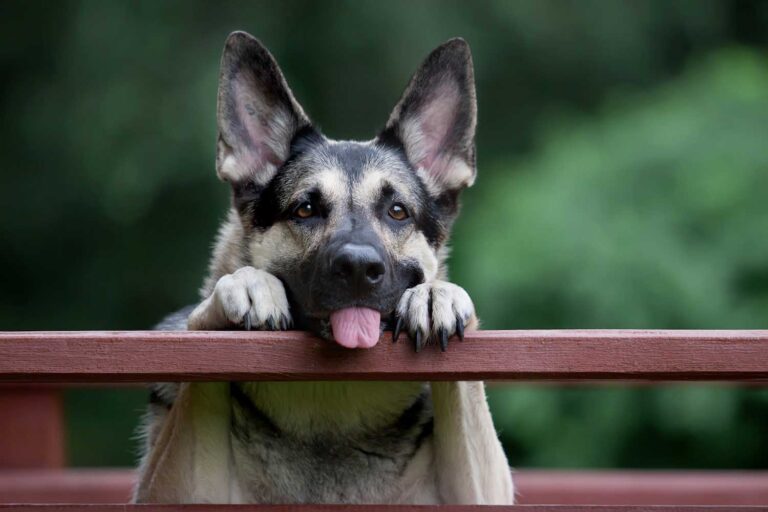Yes, a dog’s mouth is not cleaner than a human’s. While there are differing bacteria, both can carry harmful germs.
Many people wonder whether a dog’s mouth is cleaner than a human’s. This popular myth has been debunked. Despite the belief that a dog’s saliva can possess antibacterial properties, it does not necessarily make their mouth cleaner. Humans and dogs have different oral bacteria, but both can carry harmful germs.
Further investigation reveals that dogs can carry pathogens that are transmissible to humans through licking, biting, or even through contact with their fur or saliva. Understanding the truth about this misconception is crucial in maintaining good hygiene and safety when interacting with our furry friends.
Fact Check On Canine Oral Hygiene
Is a Dog’s Mouth Cleaner Than a Human’s
When it comes to the belief that a dog’s mouth is cleaner than a human’s, it’s essential to dispel this widespread misconception. The reality is that a dog’s mouth contains various bacteria, some of which can be harmful to humans when exposed to bites or licks. In contrast, a human mouth has its own complex bacterial flora typical for omnivorous primates. Despite these differences, it’s crucial for pet owners to maintain their dog’s oral hygiene to prevent dental problems and potential health risks related to bacterial transmission. Additionally, regular brushing, professional cleanings, and proper dental care can contribute to a healthier mouth for dogs, debunking the myth of canine oral cleanliness.
Research indicates that the bacterial composition in a dog’s mouth is not inherently cleaner than that of humans. While certain microorganisms found in the oral flora of dogs may have minimal pathogenic potential or may be specific to canines, there is no definitive evidence of their superiority in terms of cleanliness. However, it’s important to recognize that both species can host various bacteria, and close interaction between humans and dogs can lead to the transfer of these microbiota, necessitating proper caution and oral hygiene practices.
One common misconception is related to the hygiene of a dog’s tongue due to its licking behavior. While it’s true that a dog’s tongue has natural cleaning properties that can help remove some dirt and debris, it also harbors bacteria, and excessive licking can lead to contamination and potential transmission of pathogens, including to their human companions. This underscores the need for pet owners to be mindful of their dog’s licking habits and take measures to mitigate the associated risks, such as providing regular dental care and discouraging excessive licking.
Comparing Dog And Human Mouths
When it comes to comparing dog and human mouths, it’s interesting to look at their saliva compositions and properties. Enzymes and antimicrobial agents in saliva play a crucial role in maintaining oral health in both species. Moreover, dental care is essential for preventing plaque and tartar buildup in both dogs and humans. A balanced and nutritious diet is also vital for maintaining good oral health in both species, as dietary choices can directly impact their oral hygiene. Therefore, it’s important to be aware of the similarities and differences in oral health between dogs and humans to ensure proper care for their mouths.
The Science Of Bacteria In Dog’s Mouths
Understanding zoonotic bacteria: Dogs have a diverse range of bacteria in their mouths, including zoonotic bacteria, which can be transmitted to humans and cause infections. Potential transmission to humans: While the debate over whether a dog’s mouth is cleaner than a human’s continues, it is important to be aware of the potential for bacteria in dog saliva to be transmitted to humans through bites or open wounds. Studies on wound healing: Some studies suggest that certain compounds in dog saliva may have antibacterial and wound-healing properties. However, more research is needed to fully understand the implications of these findings.
The Implications Of Canine Oral Bacteria For Humans
There are common misconceptions about the cleanliness of a dog’s mouth and its potential impact on human health. Instances of dog-to-human bacterial transmission have been a topic of interest. While some believe that a dog’s mouth may be cleaner than a human’s, the reality may be quite different. The real risks of dog kisses to human health have been discussed by professional veterinary and medical perspectives. It is important to consider the implications of canine oral bacteria for humans and to understand the potential health concerns that could arise from close interactions with dogs.

Credit: www.myarlingtonvet.com
Frequently Asked Questions On Is A Dog’s Mouth Cleaner Than A Human’s
Is A Dog’s Mouth Cleaner Than A Human’s?
Dogs’ mouths are not cleaner than humans. Both can harbor bacteria, but the types of bacteria differ. Dogs’ mouths have various types of bacteria that can cause illness. Regular dental care for dogs is essential.
Why Do Dogs Lick Their Wounds?
Dogs lick their wounds to clean them and promote healing. Their saliva contains enzymes and antibacterial properties that help protect the wound from infection. However, excessive licking can impede healing and lead to further complications.
Can I Get Sick From My Dog Licking Me?
While it’s unlikely, it’s possible to get sick from a dog’s lick. Dogs carry various bacteria in their mouths, which can transfer to humans through licking. Exposure to these bacteria can result in mild gastrointestinal issues or skin infections. Proper hygiene after contact with a dog is important.
Conclusion
To sum up, while there are claims that a dog’s mouth is cleaner than a human’s, there’s no concrete evidence to support it. Both can have bacteria, and proper hygiene for pets and humans is essential. However, it’s important to remember that love and companionship from our furry friends are invaluable, regardless of their oral hygiene.



